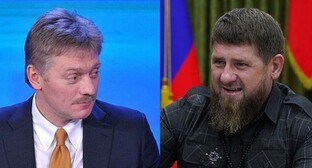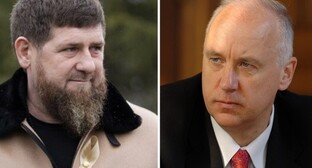15 September 2011, 22:50
RwB: freedom of press in Dagestan and Chechnya is no better
Human rights defenders believe that over the past two years the situation with the freedom of the press in Northern Caucasus, has worsened. This was stated on September 14 at the Independent Press Centre in Moscow at the press conference "Northern Caucasus: Journalists and Rights Defenders in Danger".
The conference was attended by Johann Bier, the head of the division for Europe and Central Asia of the international organization "Reporters without Borders" (RwB), and Alexander Cherkasov, an employee of the Human Rights Centre (HRC) "Memorial".
Mr Bier has sharply criticized the attitude of the authorities of a number of North-Caucasian republics to journalists.
"Over the past two years the situation of the freedom of the press in Dagestan and Chechnya has not improved, but rather became even worse. We met with journalists and government officials; we'll draw up a report based on the meetings; however, our first impressions are that the situation has got worse," he said.
Mr Cherkasov has reminded to the press conference that in November 2007 human rights activist Farid Babaev, the local leader of the "Yabloko" Party, was killed; the gunmen were caught and convicted. "However, the organizer had fled - his brother worked in law enforcement bodies - and was never convicted; however, still it's a great result," said Cherkasov and metaphorically comparing the "result" as such with "the average temperature for the hospital."
He added that now Dagestan is trying the militiamen who last summer beat the lawyer Sapiyat Magomedova, and, according to Cherkasov, the fact that law enforcers are facing trial is "not the worst thing that can take place." "There, you can achieve at least something," he said.
According to rights defenders, the situation in Chechnya is different.
"There are threats; journalists are often called to the police, but there are no beatings and killings, Mr Bier has assured.
He believes that the absence of violence against journalists is the result of "the atmosphere of fear that dominates the republic."
"Journalists don't want to quarrel with the authorities; they are scared, and therefore they write nothing oppositional. The situation is a reminiscent of the Soviet times, when there was self-censorship; and journalists knew very well what to write and what not," the expert has stated.
Chechnya has the only oppositional edition - the "Groznenskiy Rabochiy" (Grozny Worker), which is sold in kiosks for money, while all the other printed media are free and, according to Mr Bier, completely under the control of Chechen President Ramzan Kadyrov.
Mr Bier spoke with the editorial board of the "Groznenskiy Rabochiy" and asked journalists if they wrote on Kadyrov's unwanted topics, such as his loss of the trial to Oleg Orlov. "They said that they had covered the trial, but did not write that Orlov was acquitted by the court," said Johann Bier and added that the role of censorship in Chechen media is very big.
President Kadyrov makes no secret of his policy on the media. In his words, the press should serve the unity of the Chechen nation.
Author: Yaroslav Kozulin Source: CK correspondent




